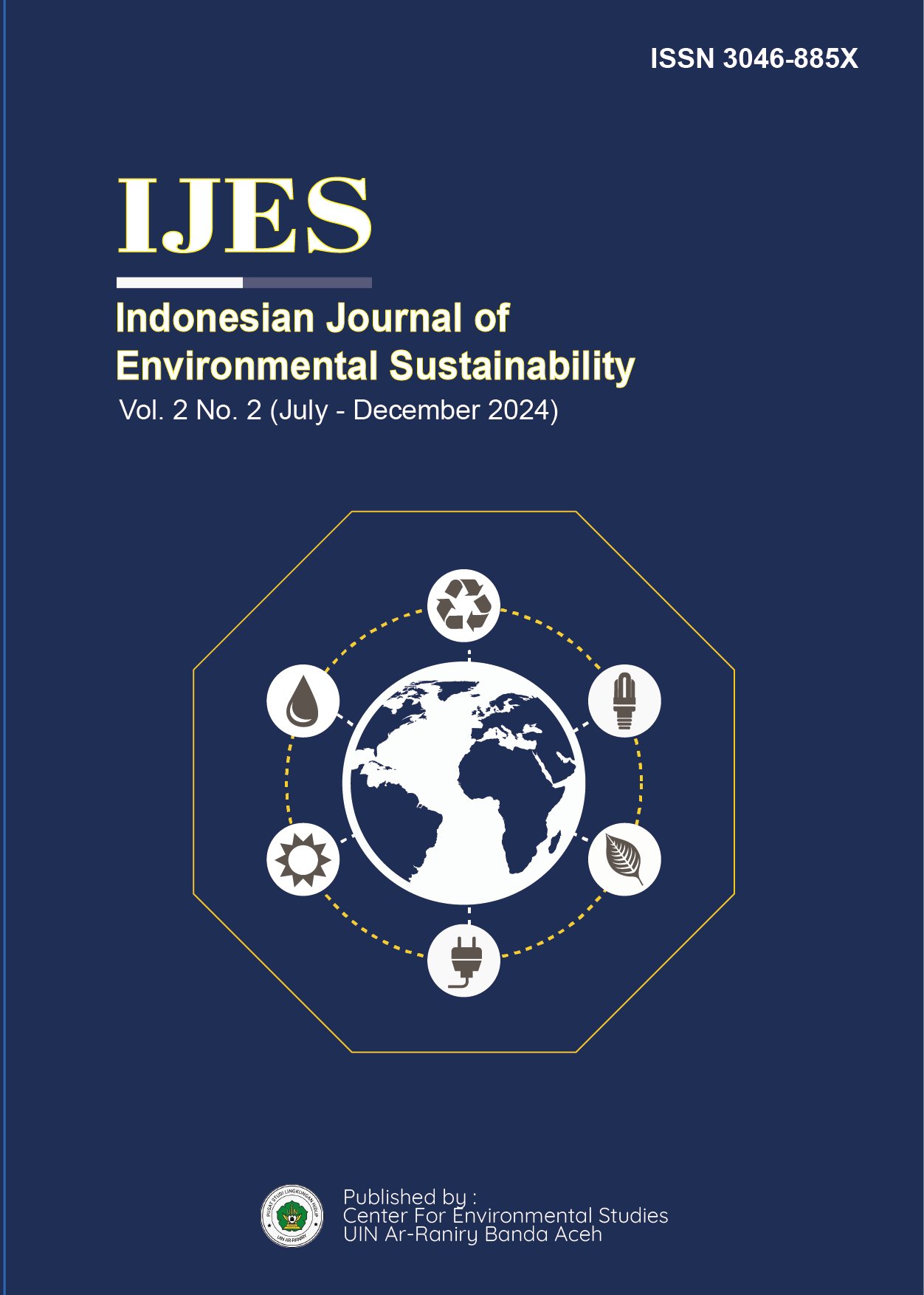ECOPOTENTIAL Bacillus sp. FROM KRUENG ACEH: BIOREMEDIATION AND ANTIMICROBIAL ACTIVITY
DOI:
https://doi.org/10.22373/ijes.v2i2.5929Abstract
Bacillus bacteria are bacteria that are tolerant to heavy metal toxicity and are able to reduce heavy metals in the environment by bioaccumulation or bioabsorption. This research aims to determine how resistant Bacillus sp. against the heavy metal Fe, the growth curve of Bacillus sp. affected by Fe metal, characteristics of the Krueng Aceh pathogenic bacteria and the antimicrobial activity of Bacillus sp. against pathogenic microbes. This research method is descriptive and experimental. Based on the research results, it is known that Bacillus sp is resistant to Fe metal at concentrations of 2000 ppm and 2500 ppm. Results of measuring the growth curve of Bacillus sp. exposed to Fe metal with a concentration of 3000 ppm entered the lag phase (adaptation) at hour 0. Then the log (exponential) phase starts from the 12th hour to the 30th hour, then the stationary phase starts from the 30th hour to the 42nd hour. The results of the test for the characteristics of pathogenic bacteria showed that there were 14 isolates of pathogenic bacteria, namely 4 genus Klebsiella, 4 genus Enterobacter, and 6 genus Staphylococcus. The results of the antimicrobial activity test for Bacillus sp., which was tested on pathogenic microbes, namely Klebsiella sp., and Staphylococcus sp., had a weak inhibitory category, namely 2.71, 0.51, this shows that Bacillus sp. unable to inhibit these pathogenic microbes.
















